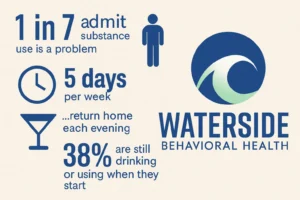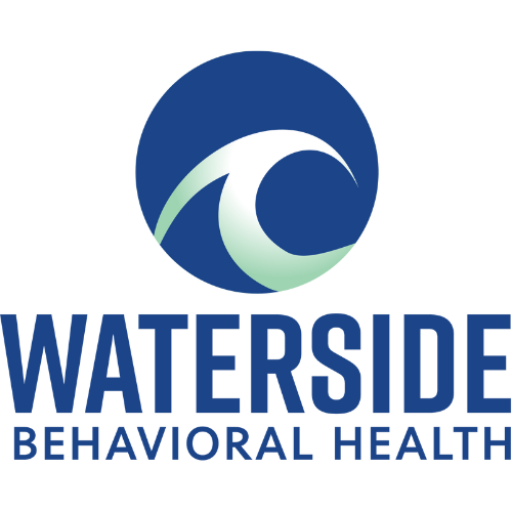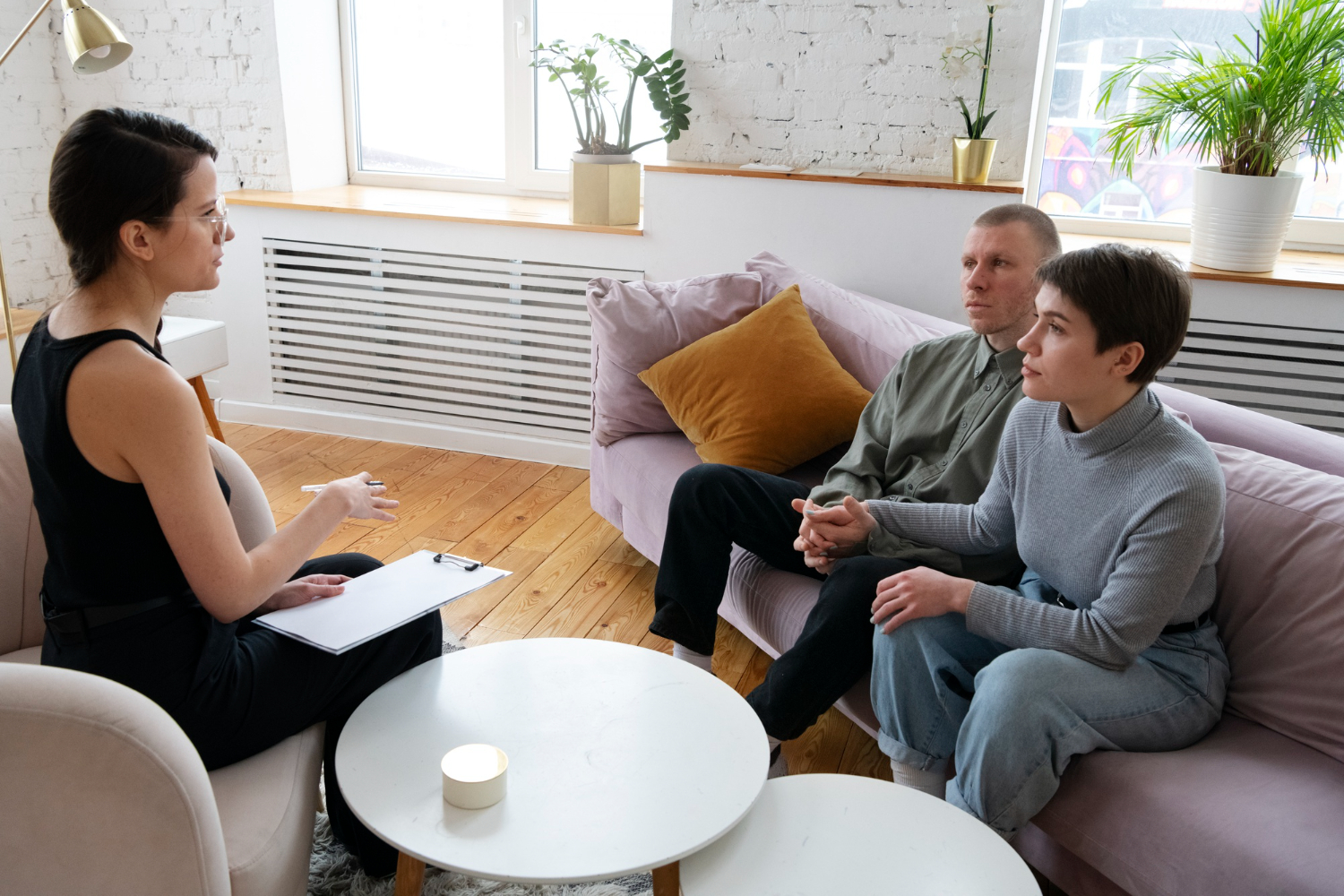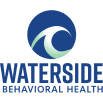You love someone who’s using.
They say they’re fine. They say it’s not that bad. They promise they’ll slow down—after the next trip, the next deadline, the next crisis.
They still go to work. They still make dinner. They still tell jokes. But something in you knows: this is not sustainable.
You might not have the words for it, but you’re waking up in anxiety. Bracing for mood swings. Dreading weekends. Wondering if you’re the only one who sees the problem. Wondering if loving someone means waiting around for their bottom to finally drop out.
This blog isn’t here to shame you. It’s here to show you: you’re not crazy, you’re not alone, and you don’t have to wait for catastrophe to get help.
Even if they don’t “think they need it,” a Partial Hospitalization Program (PHP) can be a powerful turning point—for them, and for you.
“It’s Not That Bad”—The Sentence That Keeps People Stuck
High-functioning addiction hides behind routines and responsibilities. Maybe your partner still goes to work, pays bills, shows up to social events. Maybe no one else would even guess they’re struggling.
But you live with the side effects:
- The defensive tone changes
- The disappearing acts
- The weekend binges that leave emotional debris
- The sense of walking on eggshells
- The mental gymnastics of “Is this normal?”
When you try to bring it up, it’s brushed off.
“I’m not like those people.”
“Everyone drinks like this.”
“I’m just stressed.”
“You’re overreacting.”
So you wait. For the wake-up call. The DUI. The lost job. The breakdown. But that moment doesn’t come—at least, not fast enough.
That’s where PHP can change everything—without needing the house to burn down first.
What Is a Partial Hospitalization Program (PHP), Really?
A Partial Hospitalization Program is an intensive behavioral health program that provides full-day treatment (usually 5 days per week) for people who are in emotional or psychological distress—but who don’t need 24/7 inpatient hospitalization.
It’s designed for people who need more than a weekly therapy session, but who also don’t need to be pulled out of their lives entirely.
PHP at Waterside Behavioral Health includes:
- Daily group therapy (with peers going through similar struggles)
- Individual counseling sessions
- Psychiatric assessment and medication support
- Crisis stabilization
- Structured routines and daily accountability
- Skill-building in areas like relapse prevention, emotional regulation, and communication
- Optional family support and check-ins
Clients return home at night. No overnight stay. No locked doors. Just consistent, daily support—at a depth most people have never experienced before.

Why People Start PHP Before They “Feel Ready”
Here’s the quiet truth: most people don’t feel ready for treatment.
They feel scared. Ashamed. Suspicious. Resigned. Convinced they’ll fail anyway.
But people start PHP not because they’re ready—but because something in their life becomes unignorable:
- A partner says, “I can’t keep living like this.”
- They wake up realizing they’ve burned too many bridges.
- They’re too anxious or depressed to function.
- Their therapist or doctor recommends a higher level of care.
Sometimes, all it takes is one clear conversation from someone they trust.
What You Can Say (When “Just Stop” Isn’t Working)
If your partner doesn’t see their behavior as a problem, pressuring them usually backfires. But you can name your experience.
Try:
- “I’m scared about what this is doing to you—and to us.”
- “I found a program that might help. Will you just hear me out?”
- “This isn’t about blaming. It’s about finding support.”
- “You don’t have to call it addiction. Just call it a hard season—and let’s get help.”
It’s okay to hold compassion and boundaries at the same time. PHP is not about shaming them into change. It’s about making room for healing before everything crashes.
What PHP Looks Like Day to Day
A day in PHP typically includes:
- Morning check-in group – A space to ground and share how they’re doing
- Skill-building session – Learning how to manage cravings, cope with emotion, and communicate more clearly
- Lunch and downtime – Time to decompress, often with peers
- Afternoon therapy or trauma work – Unpacking the “why” underneath the behavior
- Evening return home – A chance to rest, reflect, and test out skills in real life
This structure becomes a stabilizing force—especially for people who’ve been spinning in chaos.
It also helps your partner reconnect with themselves—not just their roles or habits.
What If They Say No?
It’s possible they’ll resist at first.
But that doesn’t mean the door is closed. Often, what moves people is not logic—but love that’s clear and unwavering.
You can say:
- “I’m learning to take care of myself too, and I hope you’ll come with me.”
- “If nothing changes, I’ll have to make some hard choices—but I want to do this together if you’re willing.”
- “There’s a program that doesn’t require you to hit bottom. Just to show up.”
Remember: people don’t usually seek change until staying the same gets more uncomfortable. Your honesty can make that shift.
When PHP Works, It Can Change Everything
We’ve seen it happen—right here in Plymouth County and beyond.
“He was so angry when he started. I didn’t think he’d make it a week. But something about the group—he felt seen there. It gave him space to admit he wasn’t okay.”
– Partner of former client
Sometimes the first few days are rough. Resistance, sarcasm, shutdowns. But with time, routine builds safety. And safety builds honesty.
That’s when transformation starts.
It’s Not About Fixing Them—It’s About Reclaiming You
You may have been pouring energy into managing, minimizing, covering for them.
You’ve been bracing.
It’s okay to want your peace back.
You deserve a relationship with reciprocity. You deserve evenings that don’t end in spirals. You deserve to sleep without scanning for signs of another episode.
Even if they’re not ready for PHP today—you can take a step. Whether it’s calling a therapist, attending a support group, or learning more about treatment options, your own clarity is powerful.
FAQs: Partial Hospitalization Program for Partners
Is PHP the same as inpatient rehab?
No. PHP is outpatient. Clients attend during the day and return home at night. It’s structured but less restrictive than inpatient care.
Does someone have to “hit bottom” to go?
Not at all. Many people enter PHP to avoid hitting bottom. Early intervention is not only possible—it’s often more successful.
Can my partner attend if they’re still drinking or using?
Yes, but they’ll need to participate honestly and commit to safety. Our team will assess whether PHP is the right fit or if detox/stabilization is needed first.
What if they’re in denial?
It’s very common. You don’t have to convince them alone. Call us—we can guide you through how to approach them and explore options.
Will I be included in their care?
Often, yes. While we respect client privacy, family involvement (with consent) can be a powerful part of healing.
Do we need to live nearby?
Most of our clients live locally. If you’re looking for Partial Hospitalization Program in Bristol County, MA, we’d be happy to talk through availability and transportation needs.
Love Doesn’t Mean Waiting Forever
If you’re reading this, you already know something has to shift.
And maybe that shift doesn’t start with them. Maybe it starts with you saying:
“I love you. And I believe in something better for both of us.”
Call 774-619-7750 or visit our Partial Hospitalization Program page to learn more. Whether they’re ready or not, you can take the first hopeful step.




